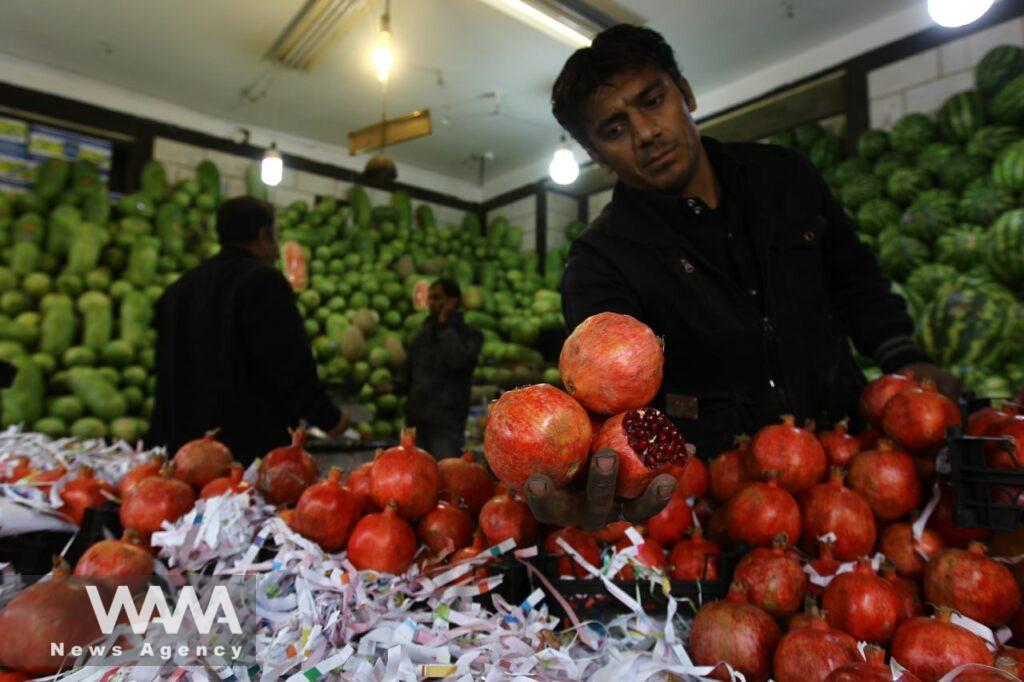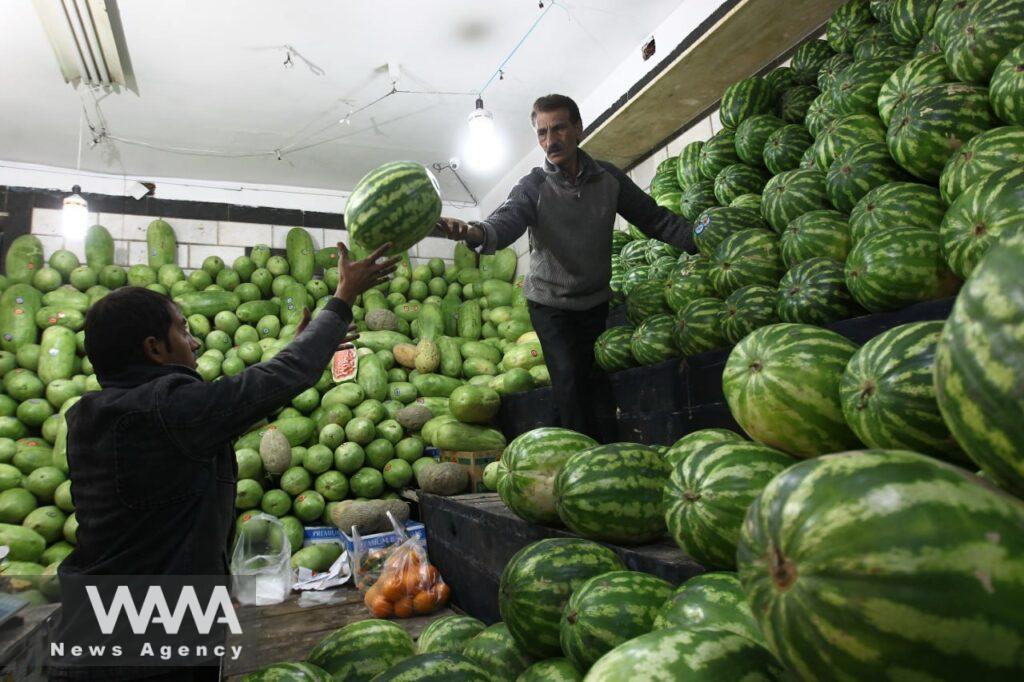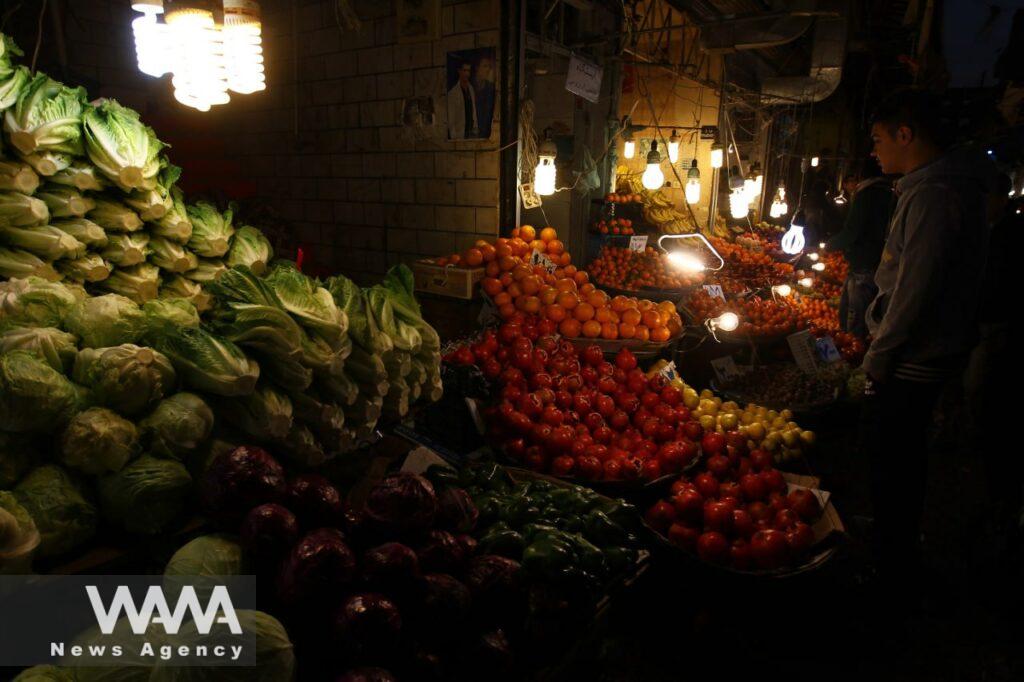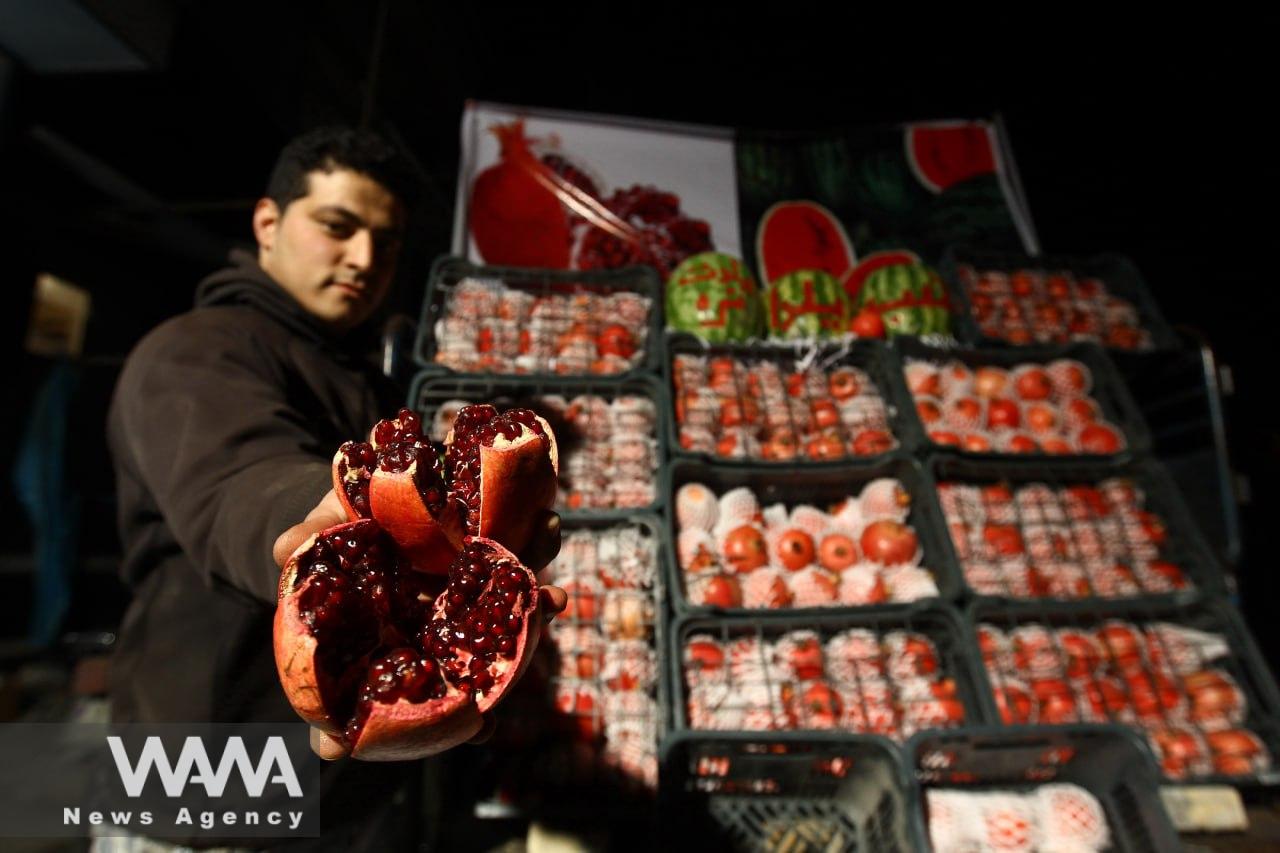Yalda, A happy and challenging night for Iranian families
WANA (Dec 21) – Let me tell you about the magical Yalda Night! The Iranian festival celebrates the arrival of winter and the longest night of the year. Families share stories, recite poetry, and indulge in mouthwatering delicacies like nuts, fruits, and pastries. Doesn’t that sound enchanting?
Well, it used to be! This night has almost become a financial nightmare for the families!
“I feel like I’m disappointing my family because I’m not providing like before,” Says Tahereh, a middle-aged woman; while preparing for Yalda, she says, “I used to be able to invite people over and have a colorful table with various food and pastry, now I barely can buy enough stuff for just my daughter and me.”
Recent economic challenges in Iran have affected the way people celebrate Yalda. Inflation, sanctions, and economic instability have led to rising prices, making it difficult for many families to afford the traditional items associated with this celebration. The increased cost of fruits and nuts, symbolic elements of Yalda, might be beyond the reach of some individuals or families.

Yalda night in Iran – Majid Asgaripour / WANA News Agency
As reported by an economic website, household shopping baskets are getting lighter every year. This forces people to lower their minimum spending requirements regularly. The cost of each basket can be roughly estimated and compared with people’s income to understand why they cannot cover their expenses.
A review of the statistics published by the Statistics Center shows that in the second month of autumn, that is, in November 2023, the annual inflation rate for Iran’s households reached 44.9%. This is despite the wage increase this year being 27% and employees and workers facing livelihood problems.
In other words, people have spent 39.2% more to buy a particular basket of goods and services in November/ December of this year than in 2021.
The new generation refuses to step in their parent’s footsteps to avoid the pressure that comes with it. ” Spending a week’s worth of budget is not worth it for one night when I have other priorities, ” says Mahya, a newlywed who has just moved into her new house with her husband.
People enter the store with the intention of buying, but when they see the prices, they give up or limit their purchases and don’t buy more than 200 grams. People’s pockets are empty, especially since Yalda night is the end of the month, and despite the abundance and variety of goods, people cannot buy.
From an economic standpoint, examining the affordability of these customary fruits and other celebratory items could shed light on broader issues facing Iranian society. It becomes a matter of festivities and a reflection of people’s economic hardships. This could serve as a lens to explore the impact of inflation and economic policies on cultural practices and social cohesion.

Yalda night in Iran – Majid Asgaripour / WANA News Agency
MORE ABOUT YALDA NIGHT
Yalda Night, also known as Shab-e Yalda, is an ancient Persian festival celebrated on the longest night of the year, which usually falls on or around December 21st. Yalda is the winter solstice, marking the longest night and the gradual return of daylight.
The celebration has its roots in Zoroastrianism, the ancient pre-Islamic religion of Persia. Yalda has been observed for thousands of years and has cultural and symbolic significance. The word “Yalda” itself means “birth” in ancient Persian, and the festival is a celebration of the triumph of light over darkness.
During Yalda Night, families and friends gather together to stay up late, eat special foods, and engage in various customs and traditions. Pomegranates, watermelons, and dried fruits are commonly consumed during the celebration. Reading poetry, especially the works of the famous Persian poet Hafez, is a traditional activity, and some people believe that Hafez’s poetry can reveal insights into the future.
The festival is a time for joy, warmth, and togetherness, symbolizing the victory of light and goodness over darkness and evil. It’s a cultural and social event that fosters a sense of community and connection with the past. While Yalda Night has its origins in Persian culture, it is celebrated by people of Persian descent around the world.
WANA / Writing by S, Khezri

Yalda night in Iran – Majid Asgaripour / WANA News Agency













User comments